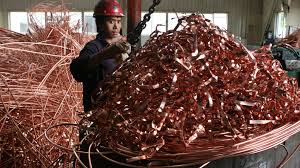by Anuradha Ramanathan* This is the time of year when the autumn conference season would normally be upon us and industry participants from all over the world would be congregating to mull over the year and to envision future supply-demand plans
This is the time of year when the autumn conference season would normally be upon us and industry participants from all over the world would be congregating to mull over the year and to envision future supply-demand plans.
This would have kicked-off long-term contract negotiations for the upcoming year, but the Covid-19 pandemic has thrown a major spanner into this well-oiled machine.
"You will see more pressure from [buyers] during September. Normally, they do it prior to the TIC [tantalum] conference in October. But this year, there won't be [any],” one producer remarks, indicating a lack of price signals for some of the largely illiquid minor metals markets.
The absence of conferences is not the only reason for delays in contract negotiations. Metals markets are also grappling with a lack of clarity on potential timelines for vaccine development and deployment, the US election in November and global economic growth prospects.
The outlook for consumer behaviour and purchasing trends is also fraught with uncertainty, particularly with the pandemic causing heavy job losses in multiple sectors.
China’s consumer confidence index (CCI) has been on the decline since December and reached 100.8 in June, its lowest since April 2017. The eurozone CCI rebounded to 98.9 in August after falling to its lowest since 2016 but is still below the 100 mark, according to the OECD. A CCI below 100 indicates consumer pessimism about the economic outlook, potentially leading to less spending and more saving.
Buyers look for flexible supply contracts
To navigate this prolonged uncertainty and reduce risk, consumers are requesting supply flexibility and volume optionality clauses in contracts, producers and traders say. "Long-term contract negotiations are delayed this year and buyers are seeking flexibility and optionality rather than discounts,” a trader says. This places pressure on producers as margins shrink further.
In response, producers are looking to limit discounts in the contracts, to offset the potential hit from the supply flexibility clause – particularly given that many are facing narrow margins when taking production costs into consideration.
Consumers have also requested fixed prices for year-ahead delivery and in some cases even two years ahead, especially for certain materials such as tungsten and chromium that are currently at historic lows, producers and traders say.
Argus-assessed prices for ammonium paratungstate (APT) fell to a year-to-date average of $217.72/mtu duty unpaid in warehouse Rotterdam, below the 10-year average of $298/mtu and a 20-year average of $242.50/mtu. Prices for 99pc alumino thermic chromium plummeted to a 14-year low of $5,600-5,800/t in late August.
*Deputy Editor of argumedia.com
(argumedia.com, 16 September 2020)
Although many producers are reluctant to provide supply flexibility and wide discounts for a long period, buyer requests to lock in supply contracts for forward delivery have provided a signal for demand recovery, sellers say.




